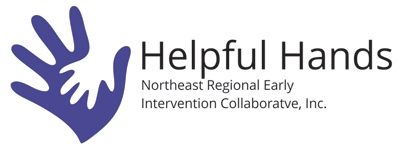Help for New Jersey Families
EARLY INTERVENTION SERVICES
EARLY INTERVENTION IN NEW JERSEY
Early Intervention is used to describe the services and supports that are available to babies and young children with developmental delays and/or disabilities and their families.
Services may include developmental intervention, speech, physical or occupational therapies or other services based on the individual need of the child and family.
NJEIS uses a coaching and collaborative model. Families and Early Intervention Providers work together as a team, prioritizing what is important to the family in meeting their child’s developmental needs.
A TEAM APPROACH
Developmental intervention helps families and early intervention practitioners implement child focused services through a team approach that facilitates development within natural settings and routines and in the context of meaningful relationships.
Families, Early Intervention Practitioners, Service Coordinators, and designated Community Agencies can work together as a team to meet the child and family’s needs and support each child’s growth and development.
WHAT TO EXPECT
Developmental Intervention
Early Intervention recognizes and respects the central and important role of the family in their child’s life. The mission of Early Intervention is to assist the family in meeting the developmental outcomes for their child. Families and practitioners work together to implement these activities. Discipline therapy(ies) may or may not be included as part of the Individualized Family Service Plan (IFSP).
✔ Relationship Development
Promote a positive parent/caregiver -child relationship as the core of intervention efforts.
✔ Learning Opportunities
Identify activities and daily routines which can be utilized as learning opportunities for the child.
✔ Learning Environments
Finding opportunities in everyday places where children live, learn and play. That could be places like the playground, home, and libraries, using materials that are interesting to the child to promote his/her acquisition of a variety of skills.
✔ Networking
Networking with and providing consultation to community providers and friends that the family chooses.
✔ Track Progress
The IFSP team monitors progress toward meeting developmental outcomes.
✔ Coordinate Activities
Coordinate the intervention activities that are provided within the IFSP.
See What an Early Intervention Session Might Look Like
Individualized Family Service Plan
An Individualized Family Service Plan (IFSP) is designed by the IFSP team. Team members include the family, whomever the family wants to invite and include, the service coordinator, the evaluator(s) or practitioner(s).
The team reviews the family’s concerns, priorities and resources, while at the same time reviews the evaluations, assessments and other developmental reports. Together the team creates child and/or family outcomes including strategies and ways to address the identified family priorities.
Steps that lead to the IFSP:
SPOE - System Point Of Entry
Call 1-888- 653-4463 to make a referral
Targeted Evaluation Team
Targeted Evaluation Team (TET) Professionals trained in evaluating developmental delays of young children.
Service Coordination (SC)
Each family is assigned an Ongoing Service Coordinator
Family Directed Assessment (FDA)
The FDA is a semi-structured interview tool for gathering information about a child and family’s daily routines & priorities. It provides the blueprint for the IFSP development
Individualized Family Service Plan (IFSP)
The IFSP is a written plan of supports and services developed by the IFSP team to address the child and/or family outcomes.
Periodic and Annual Reviews
Periodic reviews are held to determine if any progress has been made toward outcomes and if modifications to outcomes or services are needed in the IFSP. Annual Reviews are similar to periodic reviews, except it is also to determine continued eligibility.
